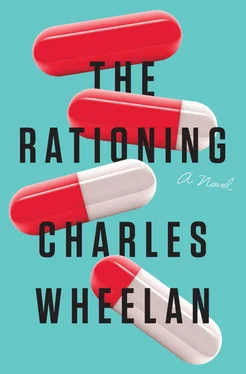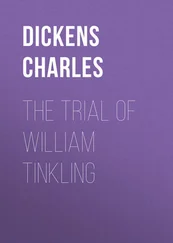The homeless guy was soon forgotten. Bobo got better. She was placed in the Los Angeles Zoo and became a hit attraction. Just last year she “mated successfully” (a term I now use with my married friends), and the world eagerly embraced the son of Bobo, Hanson, who was named for the Long Beach firefighter who rescued Bobo from the warehouse blaze.
BOBO WAS A SIDESHOW, A DEVASTATING DISTRACTION. WAREHOUSE 61 also contained a shipment of research materials and pharmaceutical products that were en route from the naval laboratory in Honolulu to the mainland. That shipment included the core ingredients for twenty-five million doses of the drug transcriptin, which we now know by its commercial name, Dormigen. For anybody working anywhere in science or medicine—for people like me—the development of Dormigen was like the World Series and the Super Bowl rolled into one. Other kids dreamed of coming to bat in the ninth inning of the seventh game of the World Series with the score tied and the bases loaded. Guys like me cried when our mothers drove us to Little League practice. As I stood in right field, where the ball invariably came more than it was supposed to, I imagined inventing something like Dormigen—the most important breakthrough in medicine since penicillin.
Dormigen is an effective treatment for viral infections and bacterial infections and most parasites. If Dormigen were a person, he would play professional basketball, publish popular novels, and teach math at Harvard, all while dating a supermodel. I have given some thought to that metaphor. Just as we do not expect people who teach math at Harvard to play professional basketball, scientists had always assumed it was improbable, if not impossible, to find a drug that could be effective against all the different pathogens that pose harm to humans. Then we created Dormigen.
It was none too soon. By the 2020s, many traditional antibiotics were becoming less and less effective. The “golden half-century” of medicine—during which a cheap course of antibiotics would wipe out anything from venereal disease to tuberculosis—was over. We had collectively neglected what Charles Darwin taught us: pathogens adapt or die. Those that were not dying in the face of penicillin and its relatives were getting stronger and more dangerous. Pediatricians blithely passed out prescriptions for antibiotics to parents with screaming children, regardless of whether those drugs were necessary or even effective against little Ellie’s ear infection. The grocery shelves were full of every imaginable antibacterial product. Never mind that soap and water worked better than most of them. The peak of this dangerous silliness was when Hanes and Jockey both released antibacterial underwear, almost immediately capturing 40 percent of the market. (“Germ-free fresh!”)
The germs just kept getting stronger and more resilient. Evolution moves swiftly for organisms that can produce millions of offspring a day, any one of which could be the mutant strain equipped to live comfortably in antibacterial underwear. By 2024, public health officials were warning of a crisis. The number of fatal hospital infections from so-called “superbugs”—which are really just bacteria that have developed a resistance to our best antibiotics—had been rising steadily for a decade. Every public health meeting and conference included a breakout session on antibiotic resistance. The major medical journals wrote editorial after editorial pointing out the growing threat. I remember reading a dire warning in the Journal of the American Medical Association that concluded, “Without a major change in behavior, we will soon face a medical return to the pre-penicillin era, and that should scare us.”
That did not scare us, apparently, at least not beyond the medical and public health community. By then, almost half of us were wearing antibacterial underwear. We were also using antibacterial sunscreen, buying phones with bacteria-resistant keyboards, and decorating our homes with antibacterial paint. All the while, the germs marched and drilled and produced more robust offspring; the number of Americans dying from drug-resistant hospital infections quietly eclipsed the number of Americans dying from HIV/AIDS and motor vehicle accidents combined.
And then Buster Bowman died. I liked him well enough; his music was popular in a “retro” kind of way when I was in college. The cable news networks played the announcement of his death over and over again. He had been admitted to a prestigious New York hospital for a routine procedure. The media and Bowman’s die-hard fans had camped out on the sidewalk outside the hospital, hoping to snap some photos of him or to get an autograph on his way out. What they got instead was Bowman’s physician, a white-haired fiftyish-looking man, who stepped out of the main doors of the hospital entrance in his blue scrubs to give them shocking news: “Buster Bowman died shortly after seven this morning,” he said.
The doctor was so quiet that many of the fans sprawled on the sidewalk did not hear him. Most of the tabloid photographers were around the corner vaping. Those who heard the doctor’s mumbled pronouncement rushed forward; the news spread through the crowd like an electric current. The reporters began yelling for the doctor to repeat his statement. They demanded more details. How does someone who comes in for a ruptured Achilles tendon end up dead?
Bowman’s physician had the look of a man who had been awake all through the night. He composed himself and stepped toward the bundle of microphones now being thrust in his direction. “Is this okay?” he asked of no one in particular, giving the statement a sense of performance art. Then he delivered the stunning details: “Buster Bowman was pronounced dead at 7:05 a.m. He died of a massive infection that we were unable to control with antibiotics. That is all the information I can provide at this time, pending an autopsy and a hospital investigation.”
My parents and their friends were devastated; Bowman was the rock icon of their generation. Public opinion toward antibacterial products changed overnight. Being spotted at the gym in antibacterial underwear was now only slightly more socially acceptable than wearing baby sealskin. But the pathogens were literally out of the bottle. Dormigen would have saved Buster Bowman, but it had not been invented yet.
AL GOYAL, THE CEO OF CENTERA BIOMEDICAL GROUP, STARED at the spreadsheets arrayed on his desk. “This won’t work,” he said to his CFO, who was sitting opposite the impressively large and orderly desk. “We can’t have another quarter like this.”
Aditya “Al” Goyal was born in Mumbai, still Bombay at the time. He became Al at Harvard Business School, where he recognized that his classmates preferred their diversity in manageable doses. (At trial, his mother still referred to him as Aditya, causing some confusion.) Goyal knew his way around a balance sheet. He graduated from one of the prestigious Indian Institutes of Technology, which admit students based on the results of a single standardized test given across India. More than a half million students sit for the exam every year and fewer than ten thousand are admitted to the Institutes—making Harvard and Yale seem like community colleges by comparison.
Goyal joined McKinsey & Company, the prestigious consulting firm, in their Mumbai office. He was promoted to the New York office and then McKinsey sent him to Harvard, the business equivalent of finishing school, where he was a Baker Scholar (top 5 percent of the class). No one ever denied that Al Goyal was a very smart man, even after the trial. He was not necessarily brilliant, as that implies some creativity or exceptional skill. Goyal was most adept at running slightly faster than everyone else, jumping through whatever hoops happened to be placed in his path. He was not one to spend a lot of time questioning the direction he was being told to run, or why he was jumping through the hoops along the way.
Читать дальше












